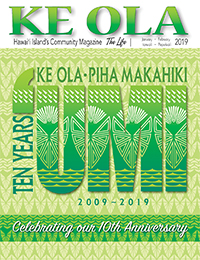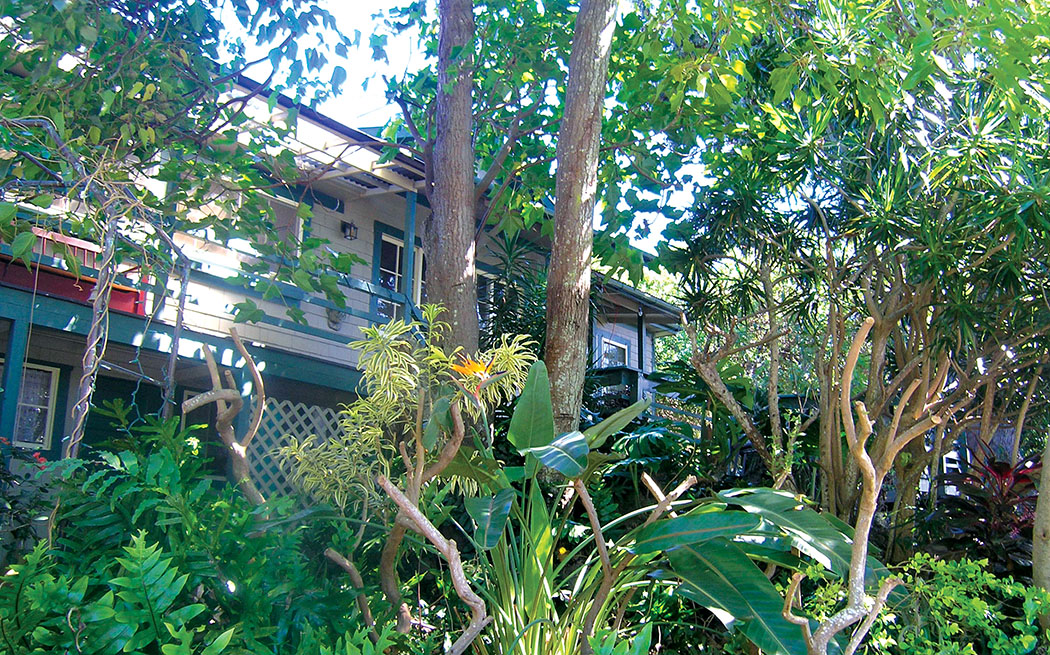
Grammy Dust: Charles Michael Brotman is Sparkling with it!

By Catherine Tarleton
It’s difficult to describe Charles Michael Brotman in words. He’s a lifelong musician, songwriter, producer, mentor, and Grammy Award winner. Yet, sitting barefoot in his studio, picking the bass line for a new track—sharing it, listening, tweaking it, recording again—he is relaxed, at home, just a guy doing what he loves: making music.

“Music makes people feel great, it makes people cry,” he says. “If it doesn’t elicit an emotional response, it won’t work out there in the world.” There’s an orchestra at his fingertips. Rows of knobs represent strings, percussion, and horns. Instead of a baton, he conducts with twists and turns, sliding levers, and tapping keyboards: piano and computer. He’s looking for that combination, that mesh of sound and rhythm that says what he wants to say. Today, it’s a catchy holiday tune for a movie. Tomorrow, it might be an island pop song for a TV show.
“Right now, there are several songs I’m just finishing up,” he says. “I’ve been working with different co-writers in Honolulu and on the mainland. There’s a production library in Europe that I’ve been working on, too.” A production library is a resource for television and film companies to purchase music for their projects. In comparison with a full score of original music that may be used for prime time TV shows and big-budget movies, production libraries provide source music to set the scene, even if it’s just a few bars.
Charles continues, “They might need something in a dance club, or maybe somebody just died … Even so, it has to be musical; it has to have a vibe; it has to be sonically correct … You also have to be prolific,” Charles continues. “Over the years I’ve done quite a bit of music, well into the hundreds, 400–500 at any time generating placement income. I’m still working for a living.”

Originally from Mercer Island, Washington, Charles grew up in a musical family, and first met music via the violin. He learned to play guitar at age 12, and performed with various bands in high school and college. In graduate school he specialized in baroque and medieval music, and fell more and more in love with classical guitar (although Eric Clapton was also an early influence.)
After graduation, Charles came to Hawai‘i to earn a masters in music at the University of Hawai‘i at Mānoa, where he taught classical guitar for nine years.
“Early on, I didn’t know anything about the business of music,” says Charles. “I went to music school, I graduated. I didn’t know how royalties work. I knew if you were going to make it, you have to record. So, I was shopping my music, meeting people. I’d go over to LA and drive up and down Sunset Boulevard. One time I met a publisher. He asked me, ‘Would you be interested in licensing this music?’ I said, ‘Sure—whatever that means.’”
The publisher advised him to join American Society of Composers, Authors, and Publishers (ASCAP) and keep writing his music. “The first check was for $10,” says Charles, “Then $50, $100, $1,000. We were building it like an annuity. I remember thinking that if I could earn $1,000 a month, that would be enough to live on, I was pretty young and naive. And—it took several years of work to even get to that point.”
“He took the time to teach me how to do this,” says Charles. “Eventually, I got a record deal, and that record got into the Top 10 in the US. That gave me a degree of confidence, the thought that, I guess I can really do this.” In the 1980s, he launched Pacific Music Productions in Honolulu, and began composing. In 1990, he came to Hawai‘i Island, almost as an experiment.
“It was not anything I expected,” Charles says. “The new F&B [Food and Beverage] director of the Ritz Carlton on the Kohala Coast [now the Fairmont Orchid] had heard me and my group play at Lewer’s Lounge in Halekulani, and invited me to come and play music. I talked to my wife, Joanie, and she said, ‘Let’s give it a try.’ After a couple of months, there was no going back to O‘ahu.”

“It’s weird how it works out,” he continues. “Especially in music, things that push you forward tend to come out of left field. I guess that’s life, too.”
In 1997, he had the idea to record a nice, acoustic guitar CD that could be sold in the resort gift shops, so he teamed up with fellow guitarists Charles Recaido and Kevin Teves (later, replaced by current member Rupert Tripp, Jr.) to form the band Kohala. With sister Jody, he created Palm Records, and built Lava Tracks Recording Studio in Waimea to produce their first album.
“We had talked about wanting to continue making records, but controlling my own destiny, so to speak,” says Charles. Jody was a buyer at Nordstrom with sales and marketing experience, and a big music fan. The idea was, Charles would make the music and she would sell it.
“We didn’t intend for Kohala to be a performing group,” says Charles. “But we started getting requests to perform. A fellow from Japan heard us in a Borders listening station, and called. He thought Palm Records might be a good partner with his company in Japan, and that has gone on 20 years plus 10 new Kohala CD releases. Kohala has gone from playing in tiny little clubs in Tokyo with 100 people packed in, to now doing theatres all over Japan seating 1,500 and more, and they sell out. It’s not what we had expected, but it sure is fun!”

In 2005, Palm Records produced a collaborative album featuring nine kī ho‘alu masters, Slack Key Guitar Volume 2. That year, Charles won a Producer Award in the inaugural Hawaiian Music Grammy category. He has since produced two more Grammy-nominated albums, Slack Key Guitar: The Artistry of Sonny Lim in 2006, and Hula Ku‘i by Kahulanui in 2014. Winner of multiple Nā Hōkū Hanohano awards, Charles was named Hawai‘i Music Awards Producer of the Year in 2005.
“In music, nobody does it by themselves. It’s definitely a team thing. Your network is everything.”
Charles’ network continues to expand, and it’s something he shares with others—especially local musicians just starting out—during the Hawai‘i Songwriting Festival, the unique event that he helped perpetuate in 2015.
The highly successful event grew out of the Kaua‘i Music Festival, which Charles, wife Joanie and daughter Julia started volunteering for when it began in 2002. When the founding president decided not to continue on Kaua‘i, it was the Brotmans who steered it to Hawai‘i Island, rebranded as the Hawai‘i Songwriting Festival.
“The festival has been an amazing thing—giving local musicians access to industry professionals that they wouldn’t have access to even in LA or Nashville,” says Charles. Hawai‘i Songwriting Festival fees are as low as possible, mostly to help offset the costs of hotel and airfares for the visiting staff who all volunteer their time. The festival is a registered 501c3 nonprofit, and the event is run entirely by volunteers. Scholarships are available for some students.

Four years ago, Creative Labs, a division of the State of Hawai‘i Department of Business, Economic Development and Tourism (DBEDT), began talking about ways to partner with the music industry, and started a Creative Lab music immersion program that now runs back-to-back, following the Hawai‘i Songwriting Festival.
“For the Creative Lab program, we choose a small select group of musicians to create music one-on-one with top-level producers, writers and executives in the music business,” Charles says. “Unlike the festival, Creative Labs is a competitive process to get accepted. Once you’re accepted, we create ‘writing pods,’ where we pair a producer, co-writer and music supervisor with local music creators to write for shows, like Nashville, Empire, and others.” Several songs created in the Creative Labs program have been on national TV shows.
“This is our fourth year now, and we have about ten musicians come through each year. So there are about 40 writers in Hawai‘i right now who are connected with the industry at large,” said Charles. “We are really trying to develop a community, a global network of musicians, bridging our industry in Hawai‘i with the greater global music industry.”
The Hawai‘i Songwriting Festival has earned a reputation as a high-caliber learning experience for musicians, and an excellent resource for new talent and new music for the industry professionals. Many of those chosen to participate in Creative Labs started out at the festival.
Both events are made possible in part by DBEDT, Creative Industries Division, State of Hawai‘i, as well as local sponsors and donors.
As we wrap up the interview, Charles, a humble guy, poses for photos with guitars, keyboards, headphones, and the long banks of his digital orchestra. Photographer Sarah Anderson repositions the Grammy Award, polishing it with a cloth.
“You just sprinkled Grammy dust all over the room,” says Charles with a smile. Yes, and we suspect that he’s sprinkled that magic dust over many up-and-coming musicians in many rooms across Hawai‘i and beyond. Mahalo, Charles. ❖
Photos by Sarah Anderson
For more information: hawaiisongwritingfestival.com, creativelab.hawaii.gov/, lavatracks.com


